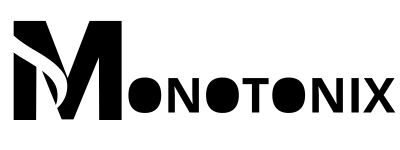Introduction to Employer Branding
Employer branding is essential for luring and retaining top personnel in today’s cutthroat employment market. It includes an organization’s reputation, culture, ideals, and general work experience. Given the abundance of information available to prospective employees about companies in the modern digital era, enterprises must actively maintain and market their employer brands. A strong employer brand attracts high-quality applicants, enhances employee engagement and loyalty, and reduces turnover rates and recruitment costs. To effectively manage these tasks, companies often hire branding specialists. A branding specialist job description outlines the responsibilities and skills needed to develop and maintain a compelling employer brand.
Why Employer Branding Matters
A strong employer brand can offer many benefits, such as attracting top talent and boosting morale and retention rates. Businesses that invest in their employer brand frequently witness a more engaged and driven employee base, which boosts output and overall job satisfaction. A strong employer brand is also linked to reduced hiring costs, indicating that investing in employer branding can lead to significant long-term cost savings.
Additionally, employer branding helps to establish a unified company culture. It guides potential employees and ensures that the company attracts individuals who share its values. This cultural alignment improves the work environment and encourages collaboration among employees. Employees are more likely to put their all into their work and contribute significantly to the firm when they share the mission and values of the company.
Effective Employer Branding Strategies
Implementing effective employer branding strategies requires a mix of authentic storytelling, employee engagement, and consistency across all touchpoints. Here are some key tactics:
- Employee Testimonials: Authentic testimonials from employees can humanize a brand and offer valuable insights into the company culture, making them more appealing to potential recruits.
- Social Media Presence: Platforms like LinkedIn are crucial for showcasing your company culture and engaging with potential candidates. A well-maintained social media presence allows companies to communicate their brand values consistently and interactively.
- Career Page Optimization: Optimizing your career page can significantly improve applicants’ experience by enhancing their ability to find and apply for relevant positions.
- Company Blog: Maintain a company blog by regularly updating it with industry-specific content, company achievements, and employee experiences to engage potential applicants and establish thought leadership.
- Community Engagement: Community service projects and events can enhance a company’s reputation, attract talent, and promote its brand, showcasing its commitment to social responsibility.
Data-Driven Insights
Employers can effectively gauge the success of their branding efforts by analyzing metrics such as employee retention rates, candidate quality, and recruitment velocity. Data analytics tools are essential for accurately measuring these metrics and ensuring that strategies yield the desired results. Regularly analyzing these metrics can refine and improve employer branding initiatives. By establishing key performance indicators (KPIs), businesses may evaluate the efficacy of their branding efforts in real-time and make well-informed decisions to improve them. Getting feedback on the benefits and drawbacks of the employer brand from both existing and potential hires can yield comprehensive information. A more appealing and genuine employer brand can be produced by implementing this data’s recommendations.
Overcoming Common Challenges
Implementing an effective employer branding strategy can be challenging due to consistency, lack of leadership support, and limited resources. Securing top buy-in, investing in the right tools, and ensuring consistent messaging across all platforms is crucial to overcoming these challenges. Educating leadership about the long-term benefits of a strong employer brand can also facilitate smooth implementation. Leveraging employee feedback and adapting to industry trends can help maintain relevance and appeal. Consistency across all communication channels is essential, and regular training and alignment meetings ensure everyone is on the same page regarding the brand’s values and message.
Final Thoughts
In today’s digital era, having a strong employer reputation is crucial to attracting and keeping the best employees. By recognizing its significance, implementing effective tactics, and using data-driven insights, businesses can develop an attractive employer brand, which ultimately contributes to the company’s overall success and long-term viability. With talent competition on the rise, prioritizing employer branding can provide a competitive edge for innovative organizations. Investing in a thorough and genuine employer brand strategy can result in lasting benefits, such as a more involved workforce and a more resilient company culture.











